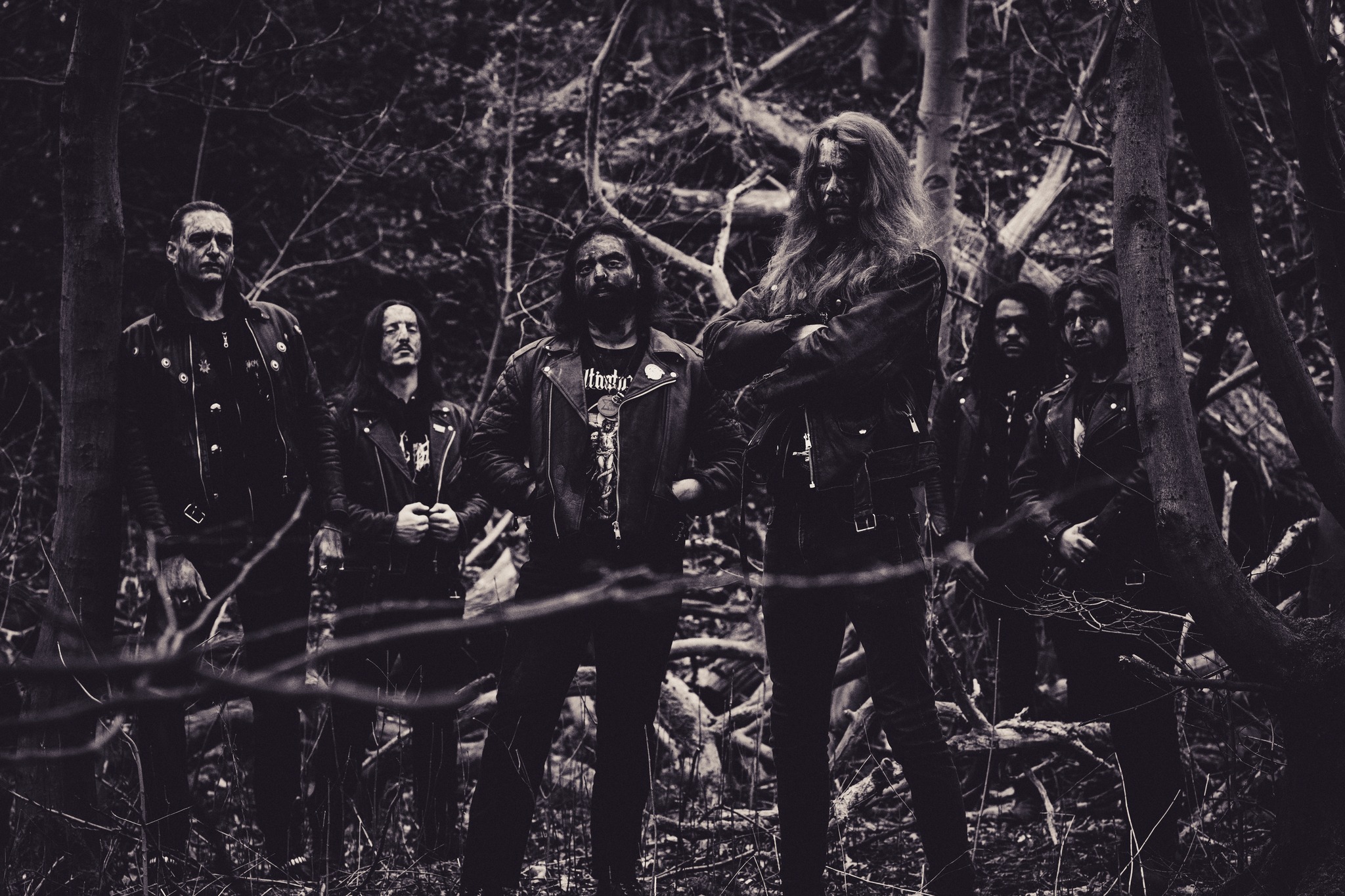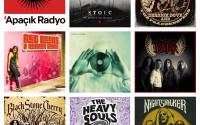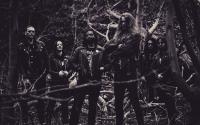Zifir'den Uğur Çıkrıkçılı, yükselişi hızla süren Black Metal grubu İmha Tarikat ile Almanya’nın underground metal dünyasında saygı gören Prophecy Festivali sırasında bir araya geldi ve İstanbul konseri öncesi grubun lideri Kerem Yılmaz'la müzikten üretim süreçlerine uzanan bir sohbet gerçekleştirdi.
Uğur Çıkrıkçılı: Prophecy Fest, 2015 yılından beri düzenlenen Almanya’nın underground metal piyasasının saygın gören orta ölçekli bir festivallerinden biri. Önemli grupları misafir etmesinin yanında, eski çağlardan kalma Balve Mağarası’nda düzenleniyor oluşuyla da festivaller arasında çok orjinal bir yere oturuyor.
Ekstrem metalden, neo-folk, atmosferik rock, dungeon synth’e uzanan geniş yelpazede grupların izlenebildiği bu festivali, bu sene Apaçık Radyo olarak takip ettik ve bazı röportajlar gerçekleştirdik. Bunlardan ilki, Almanya’nın son yıllarda başarılı albümleri ve coşkulu sahne performansları ile hızla yükselen ve birçok festivalde kendilerine yer bulan Black Metal grubu İmha Tarikat. Festival sırasında ve sonrasında yaptığımız görüşmeyi planlanan İstanbul konseri öncesi sizlerle paylaşıyoruz.
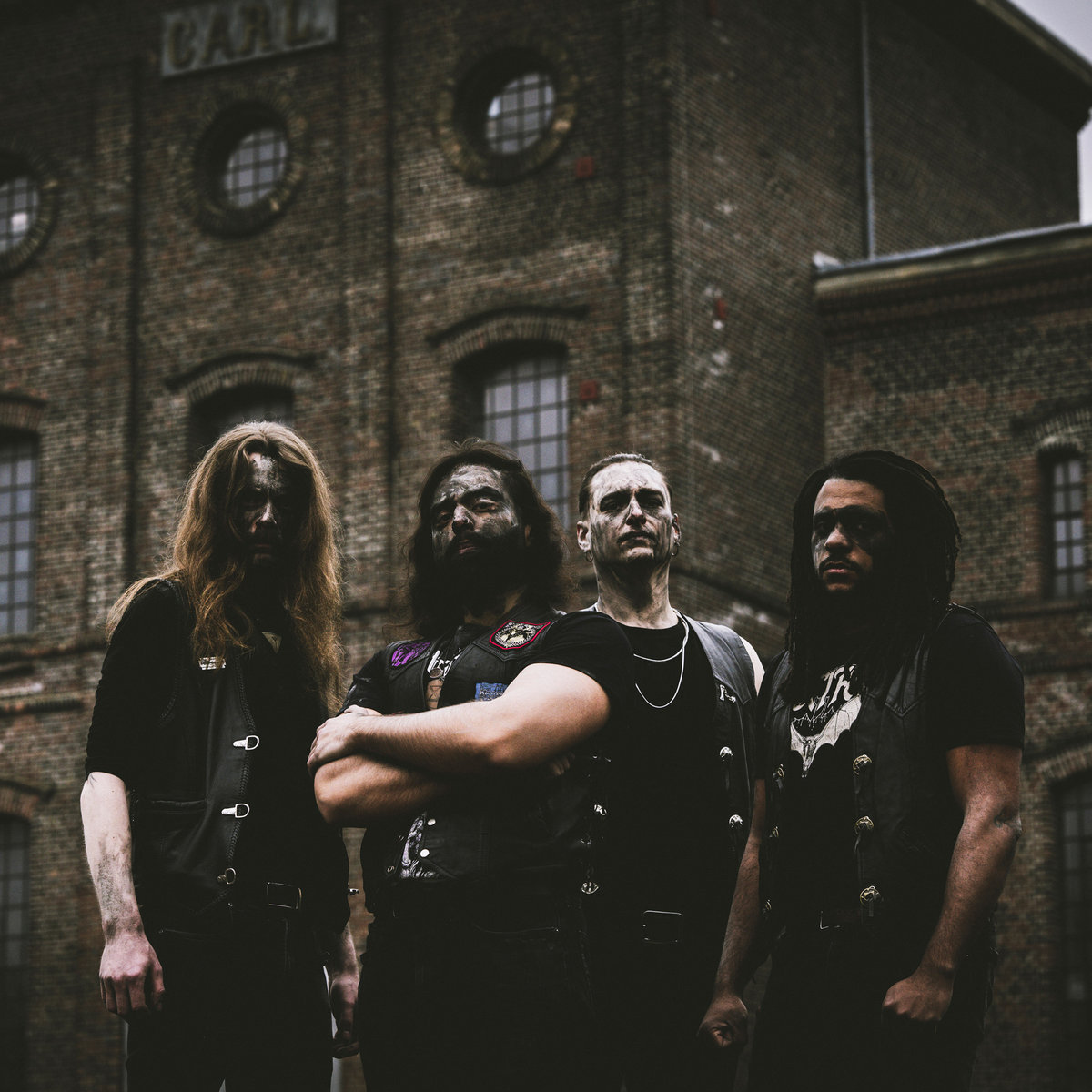
Planlanan diyorum, zira röportajda ve sosyal medyada görebileceğiniz üzere, bir kısım gruplar tarafından yapılan baskı ve tehditler neticesinde organizasyonun gerçekleşmesi riske girmiş durumdydı. Grubun özverili duruşu, İstanbul’daki dinleyici ve metal camiasının sürece sahip çıkması ile konserin başka bir organizasyon ile gerçekleşeceğini söyleyebiliyoruz. Bu sevindirici ve metalin ruhuna uyan bir dayanışmayla eminim ki İstanbul underground metal kitlesi unutulmaz bir gece yaşayacak.
Grubun lideri, Türkiye kökenli müzisyen Kerem Yılmaz’ın müzik, emosyonlar, öteki olmak ve üretim süreçleri gibi konulardaki sorularımıza verdiği yanıtları aşağıda bulabilirsiniz.
Zifiri okumalar...
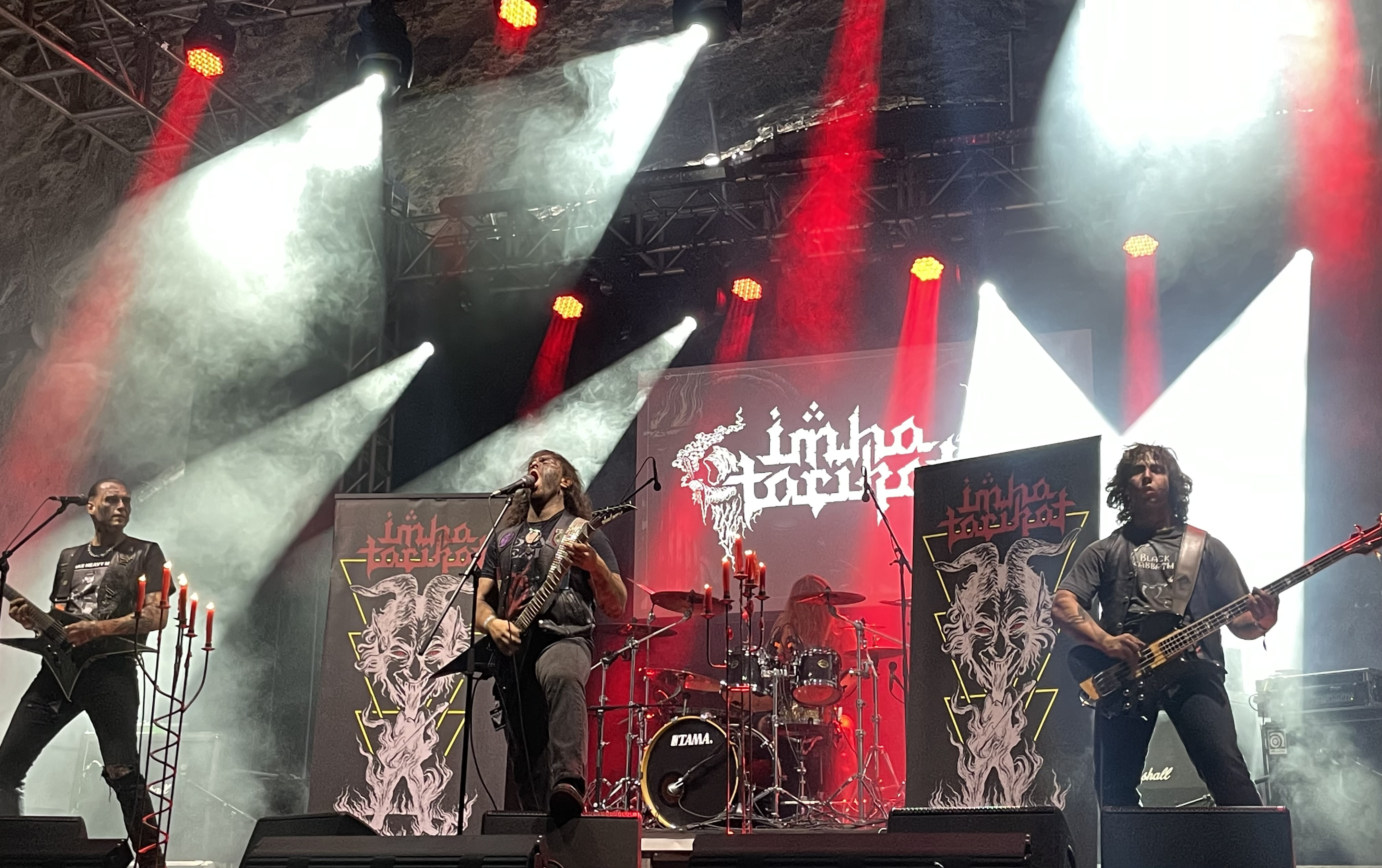
U.Ç.: Bence duygu dışa vurumu yarattığınız şarkılarda çok önemli bir yere sahip. Senin için bu süreçte, “Evet, şimdi kaydedip başkalarıyla paylaşalım,” dedirten an nedir?
Kerem Yılmaz: Bu hissi iki gün önce yaşadığım bir deneyimle açıklamak isterim; şu anda Imha Tarikat’ın beşinci çalışması üzerinde çalışıyorum ve bunun için birkaç ay boyunca dokunmadığım bir miktar demo hazırlamıştım. Onları öylece bıraktım; günlük yaşamıma, işime, konserlere, aileme ve benzeri şeylere devam ettim. Elime aldığım ilk şarkı proje adıyla “A Shadow No Light Could Cast” idi. Sürecin ortasında, zihnimdeki yapıyı birkaç saat şekillendirdikten sonra aklıma sözler gelmeye başladı. Bu sözler, genellikle kişisel hayatımdaki kritik olayları işlememle, dünyada gördüğüm şeylerle, felsefi tartışmalarla ve benzeri konularla ilgili oluyor. Bu aşamada, şu anda daha fazla ayrıntıya girmek istemediğim nedenlerden dolayı ağlamaya başladım; kafamda bazı cümleleri tekrar edip dururken şarkı da sürekli olarak çalıyordu ve o anda her şey anlam kazandı; müzik, üzerimdeki yükü alan bir araca dönüştü, beni yenilgiye uğratan o şeyin ağırlığını taşıyıp götüren bir şeye… İşte müzik benim için bunu ifade ediyor; sığınabileceğin, enerjini toplayabileceğin, duygularını büyütebileceğin, içine çekilebileceğin bir yer.
Bu verildiğinde, bir şarkı doğru gidiyor demektir ve bu, herhangi bir duygu türü için geçerli olabilir. Tek başıma oturup ağlamak elbette her gün yaşadığım bir durum değil fakat kendimi böyle bir kırılganlığa bırakabildiğimde bu arınmışlık hissi iyi geliyor.
U.Ç.: Duygudan söz etmişken, agresyonun müziğinizde önemli bir yer tuttuğunu söyleyebilirim. Bu konuda ne düşünüyorsun? Ayrıca agresyon dışında başka duygu, dürtü veya davranışlarla da derinlemesine çalışabiliyor musun?
K.Y.: Varlığımız dışarıdan saldırganlık yayıyor gibi görünse de, müziğin temelinde ilk ve en önemli olarak muazzam bir enerji yoğunluğu yatıyor. Bu yoğunluk, çok çeşitli duygularımızı ifade etmemizin temelini oluşturuyor ve bunların hepsini ayin gibi işliyoruz: Dostluktan vahşiliğe, kederden umuda kadar…
Dinleyicilerden aldığımız geri bildirim de algının ne kadar belirsiz olabileceğini gösteriyor — ki bu aslında tam olarak istediğimiz şey: Yaydığımız şeyin öznel bir şekilde anlaşılması; dinleyicilerin bizde gördüklerine dayanarak şekillenen ve bizim insanlar olarak değişmemizle birlikte sürekli yeniden biçimlenen bir anlayış.
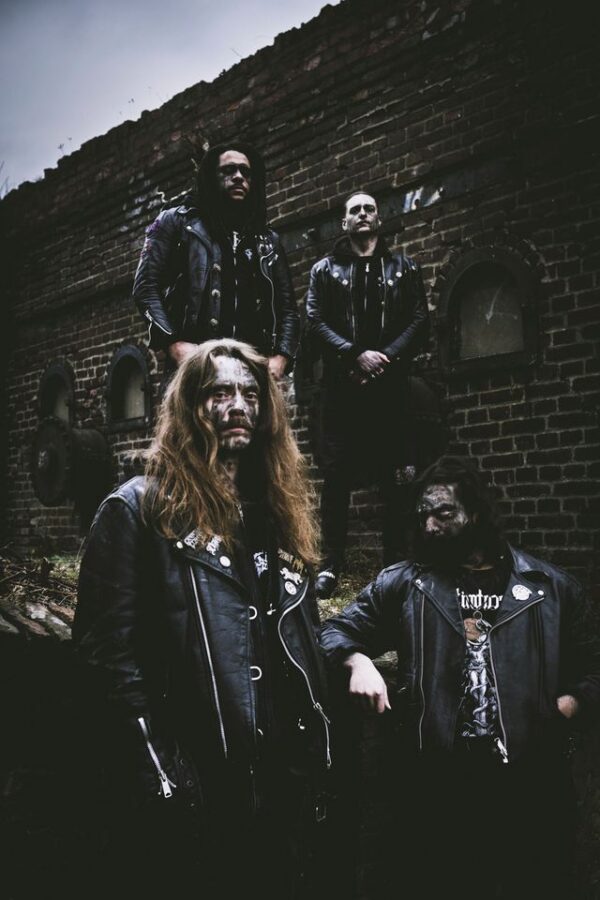
U.Ç.: Duygulardan devam etmek istiyorum. Black metal karanlık duyguları işlemeyi sağlayan önemli bir zemin sunuyor. Sizce bu karanlıkla uğraşmak hem besteciyi hem dinleyiciyi nasıl etkiliyor? Bir aydınlanmadan bahsetmiyorum; fakat bir şeyi ifade etme, ürüne dönüştürme, ortaya koyma eylemi bir insanı nasıl dönüştürür?
K.Y.: Bir sanatçı olarak, ifade ettiğimiz şeylerde büyük bir sorumluluk taşıdığımıza inanıyorum. Müzikten sanata, filmlere kadar tükettiğimiz her şey üzerimizde bir iz bırakır. Bunu aklımın bir köşesinde tutarak, Black Metal gibi yoğun bir disiplini bilinçle ve sorumlulukla icra etmek gerektiğine inanıyorum. Karanlık, delilik, şeytan, şiddet, cinayet gibi konulardan söz ederken, bunların sizi duyarsızlaştırmasını beklememek mümkün değildir ki özellikle kimliğini bulmaya çalışan genç insanlar için bu temalar çok etkileyici olabilir - benim için de öyleydi. Yirmili yaşlarımın başlarında Black Metal yaşam tarzı delilikle doluydu, şiddetten tamamen içe çekilmeye kadar her şeyi içeriyordu ancak aynı zamanda bu aşırılığa ihtiyaç duyan biriydim. Buna rağmen özümde her zaman dengeyi bulmaya yönelmiş biriydim ki hâlâ bunun üzerinde çalışıyorum ve hiçbir zaman tamamen bitmeyecek.
U.Ç.: Mortuus, Kvarforth ve Garm gibi iyi vokalistleri yalnızca teknik olarak güçlü birer frontman değil, aynı zamanda büyük hikâye anlatıcıları olarak görüyorum. Kendini nasıl görüyorsun? Ritüelistik bir sound yaratırken hikâye anlatma eylemine nasıl yaklaşıyorsun?
K.Y.: Söz yazmak ve ifade etmek, müziği bir araç olarak hangi işlevle kullandığınızı çok iyi vurgulamalıdır. Kelimeler, anıları, atmosferleri, duyguları, zihninizdeki bir resim dünyasını çağrıştırır. Sözlerle zihnimde duygular yaratmayı hedefliyorum ve bu duyguları hissedebildiğimde, bunları başkalarıyla da paylaşabilmeyi umuyorum çünkü amacım dinleyicilerle bir bağ kurmak, onlara mümkün olduğunca yaklaşmaya çalışmak… ‘Siz ve ben’ değil, ‘biz’ hissini uyandırmak istiyorum.
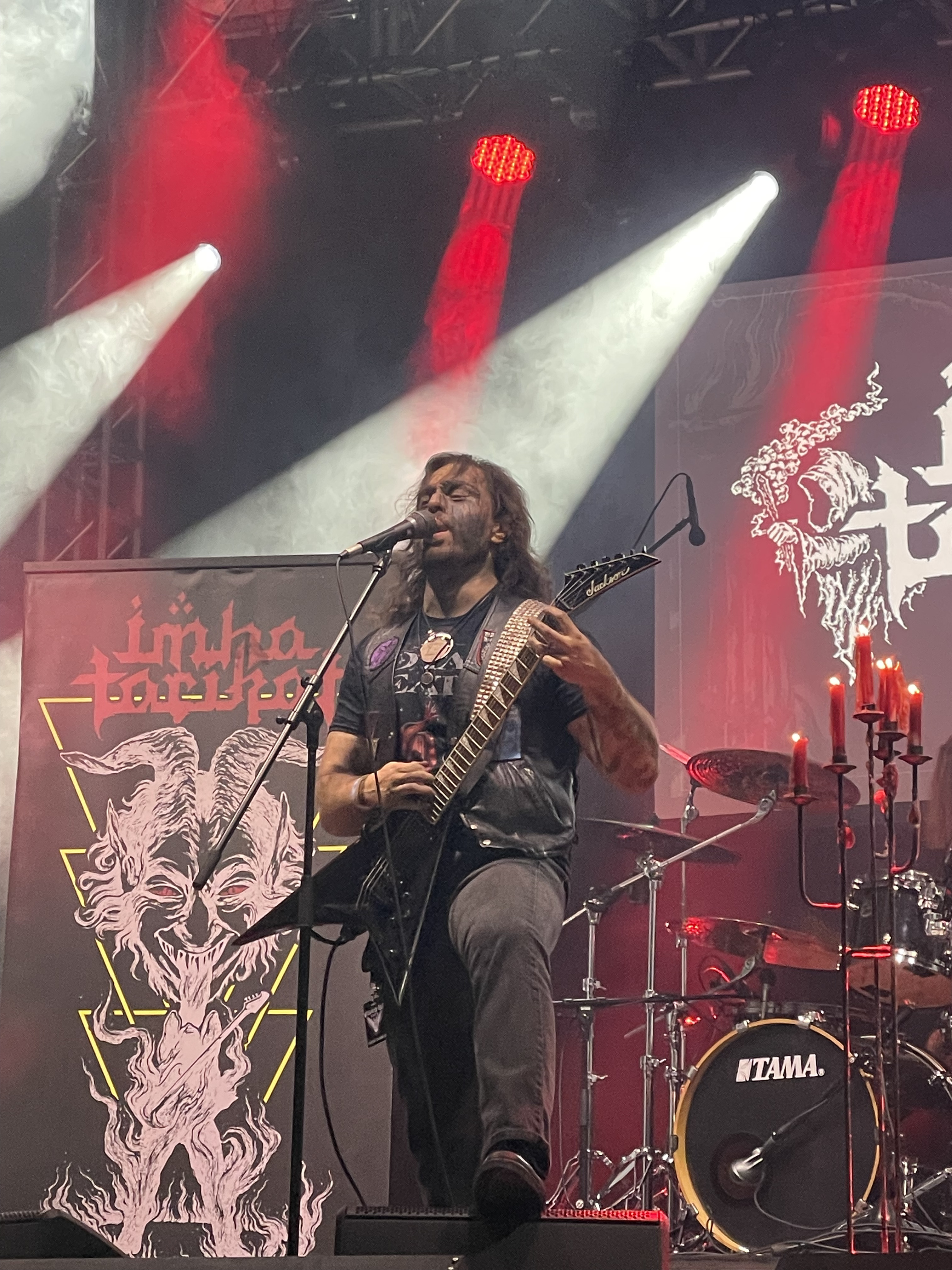
U.Ç.: Bu kulağa çok klasik bir soru gibi gelebilir ama bir şarkı yaratma sürecinde, bir duyguyu ifade ederken senin için hangisi daha önemlidir—şarkı sözleri mi, yoksa müzik mi? Elbette ikisi de olabilir. Eğer öyleyse, bu dengeyi nasıl kuruyorsun?
K.Y.: Şarkıdan şarkıya çok farklı olabiliyor! Bazen, demolardan ilham alarak, onları akıl almaz derecede çok dinleyerek sözleri yazarım; bazen de sakin bir an bulur ve içimde bir ilham patlaması yaşarım. Sonunda her bir bileşen, anlatılması gereken şeyin özgünlüğünü kaybetmemesi şartıyla birbirine göre şekillenir.
U.Ç.: Sanatçı olarak da bir dinleyici olarak da, Ruhsuz Cellat’ı etkileyen ve müzikle ilgili bakış açını şekillendiren insanlar ve gruplar kimler ve nelerdir? Bu illa müzik olmak zorunda değil; bu soru diğer sanat ve edebiyat alanlarını da kapsıyor.
K.Y.: Video oyunlarının her zaman büyük bir hayranı oldum! En eski anılarımdan biri, NES’te Super Mario oynamak. Tüm ergenlik yıllarım boyunca video oyunları oynadım - özellikle Gothic veya Dark Souls gibi karanlık fantastik oyunları. Dark Souls’un ilk oyunu üzerimde büyük bir etki bıraktı; çıktığı dönem, içinde muazzam derecede karanlık ve acımasız bir atmosfer barındırıyordu ki bunun yanında melankolik bir huzur ve dinlenme anları da vardı ve hâlâ ara ara açıp oynamayı seviyorum. İlham aldığım bir diğer oyun müziği ise Terranigma adlı bir SNES oyununa ait. Bu oyunda yeraltı dünyasından yükselip dünyadaki yaşamı yeniden alevlendirmek için yola çıkıyorsun — doğadan hayvanlara, insanlara kadar. Hikâyenin sonunda toplum öyle modernleşiyor ki uyuşuk ve mutsuz hâle geliyor. Bu oyun 1996’da yayımlandı ve zamanının çok ötesindeydi!
Ayrıca film izlemeyi ve müzik dinlemeyi de çok seviyorum. Ancak tüm bunlarda, beni teknik detaylardan çok, içimde yarattıkları duygular etkiledi. Bu yüzden bazen insanlar müziğimizi tam olarak tanımlayamıyor; bize “tamamen Black Metal” diyemiyorlar çünkü işin sadece belirli bir sound’a bakılmasıyla değerlendirilecek olursak belki o profile tam olarak uymuyoruz. Müziğimize Black Metal dememizin nedeni, yapmak istediğimizi yapma konusundaki kuralsız tavrımızdan geliyor.
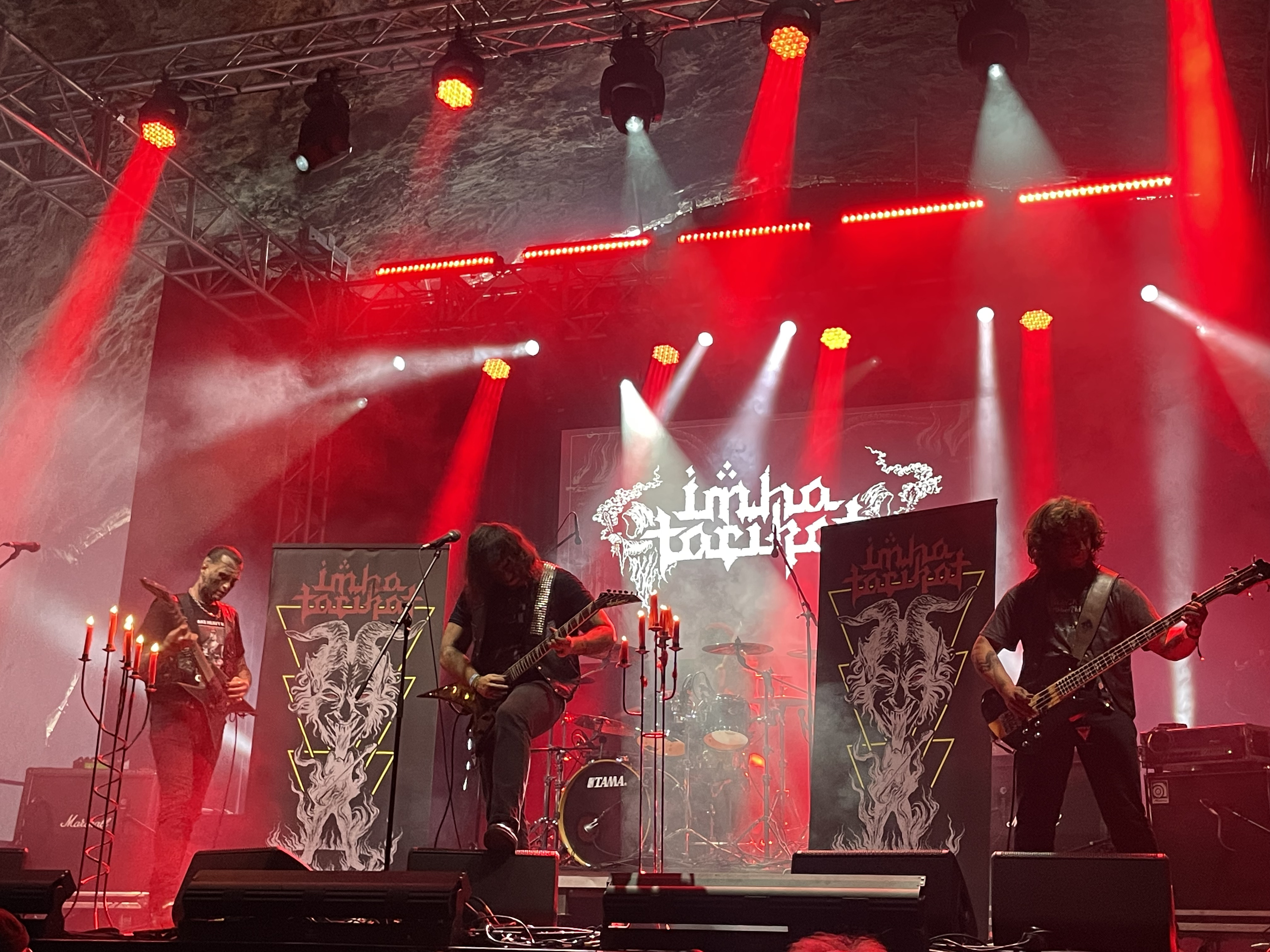
U.Ç.: Almanya doğumlusun fakat aile köklerin Türkiye’de ve fiziksel olarak da klasik Germen fenotipinden farklısın. Bu farklılıklar seni bir ‚öteki‘ hâline getiriyor mu ya da bu durum müziğinizi etkiliyor mu?
K.Y.: Essen adlı bir Alman şehrinde doğdum, büyüdüm ve hâlâ burada yaşıyorum. Burası bizim ‚Ruhrpott‘ dediğimiz bölge. Burada çok fazla farklı etnik kökenden insan var ve bu durum etkileşimlerde pek çok kültürel iz bırakıyor ki eğer buna kendinizi açarsanız ilham verici de olabiliyor. Ancak ırkçılık elbette ki var ve özellikle ergenlik dönemimde, görünür olmasına rağmen, Türk kökenimi başkalarına söylemekten kaçınırdım. Bazıları, Türkleri vahşi ya da alt sınıf olarak görürdü, oysa benim ailem her gün iyi ve emekçi insanlar olduklarını kanıtlıyorlardı. Genç bir çocuk için günlük hayatın mücadeleleriyle birlikte, bu durum beni rahatsız ediyordu çünkü her zaman çevreme karşı çok dikkatliydim.
Daha sonra ise insanların ne düşündüğüne aldırmamayı öğrendim ve onların kurallarına göre oynamaya çalışmak yerine oyunu tamamen reddettim. Böylece, sevdiğim kökenimi kabullenmeyi öğrendim. Bu durum müziği nasıl etkiliyor diye sorarsanız: yaşadığım duygular üzerinden ilham veriyor olabilir fakat bu, açıkça okunabilir bir bağlam şeklinde değil; müziğin konuları işaret edilebilir kadar somut bir şeye dayanmıyor.
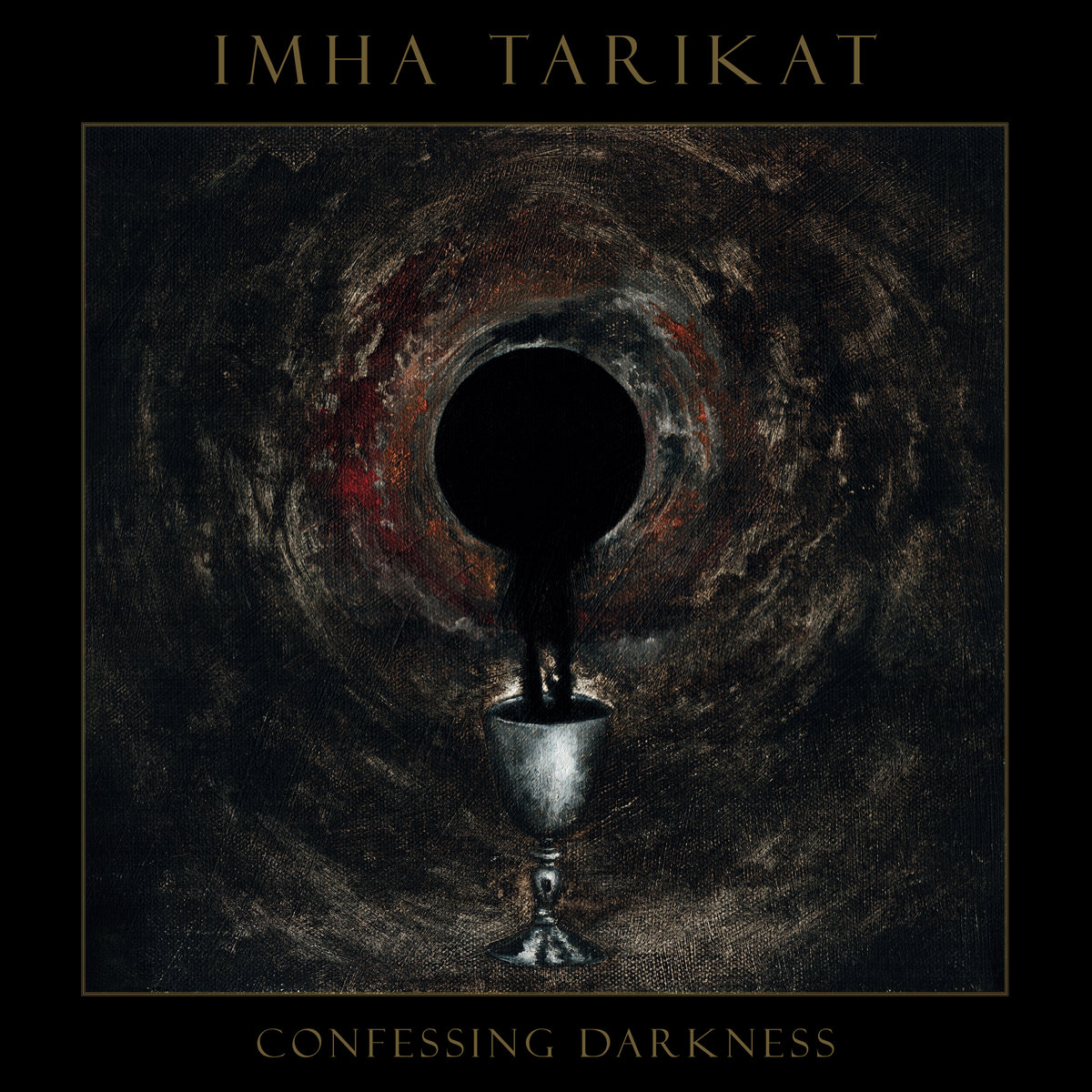
U.Ç.:Kara İhlas, Sternenbester, Hearts Unchained ve Confessing Darkness’ı bir devamlılık olarak görüyorum ve müzikal olarak belirgin bir ilerleme olduğu açıkça fark ediliyor. Müzikal geçmişini ve diskografini nasıl tanımlarsın?
K.Y.: Bu kesinlikle doğru. Imha Tarikat’ın bugüne kadarki diskografisi boyunca, yalnızca kendi başlarına duran albümlerin ortaya koyduğu çabayı değil, aynı zamanda - bir zamanlar genç olan - bir adamın hayattaki yerini bulma mücadelesini de görürsünüz.
Her bir yayın, dünyayı - benim gözümden - anlama, kendimi tanıma, müzik pratiğinde daha iyi olma ve hayatta denge bulmaya bir adım daha yaklaşma açısından birer çalışmaydı.
U.Ç.: Türkiye’de bu yıl bir konseriniz olacak. Buradaki takipçilerinize ne söylemek istersiniz?
K.Y.: Eğer mümkünse, bu soruyu şimdilik atlamak istiyorum. Organizasyon tarafında bir şeyler oldu ve etkinliğin iptal olmasına yol açabilir.
U.Ç.: Son olarak bu biraz kişisel ama söylemeden geçmek istemedim: Muhammed Suiçmez ile bir işbirliğinin gerçekten muhteşem bir sonuç vereceğini düşünüyorum. Böyle bir ortaklık sence bir gün mümkün olabilir mi?
K.Y.: Haha, bunu çok sevdim! Muhammed Abinin benim varlığımdan haberi var mı bilmiyorum ama onun kalibresinde bir müzisyenle işbirliği yapmayı kesinlikle çok isterdim!
* İmha Tarikat'ın son gelişmelere ilişkin açıklamasına buradan ulaşabilirsiniz.
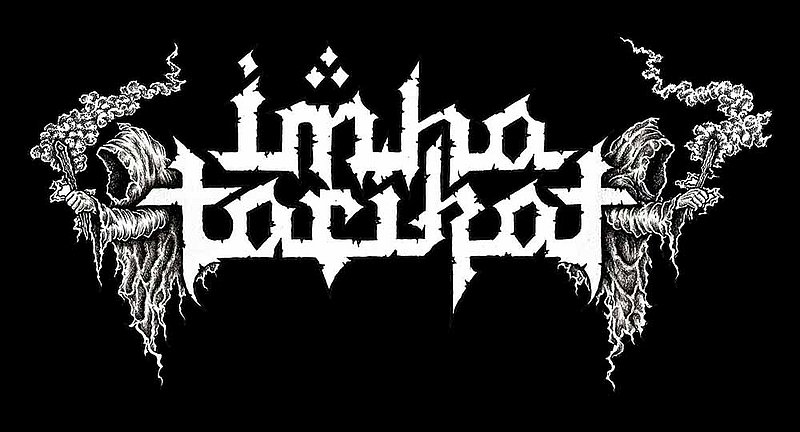
Uğur Çıkrıkçılı: Prophecy Fest is one of the medium scale festivals that has been held in Germany since 2015 and is regarded with respect within the country’s underground metal scene. Besides hosting important bands, it occupies a very unique place among festivals due to being held inside the ancient Balve Cave.
This year, as Apaçık Radyo, we followed the festival where one can watch bands ranging from extreme metal to neo-folk, atmospheric rock, and dungeon synth and conducted several interviews. The first of these is with İmha Tarikat, a Black Metal band from Germany that has been rapidly rising in recent years with successful albums and energetic stage performances, earning places in many festivals. We now present to you the conversation we had during and after the festival, ahead of their planned concert in Istanbul.
I say planned because, as you may see in the interview and on social media, due to pressure and threats coming from certain groups, the organization of the event was at risk. Thanks to the band’s dedicated stance and the support shown by the audience and the metal community in Istanbul, we can say that the concert will take place through a different organizer. With this uplifting solidarity that fits perfectly with the spirit of metal, I am sure the Istanbul underground metal community will experience an unforgettable night.
Below you can find the answers given by the band’s leader, Kerem Yılmaz, a Turkish-origin musician, to our questions on topics such as music, emotions, being “the other,” and creative processes.
Darkest readings,
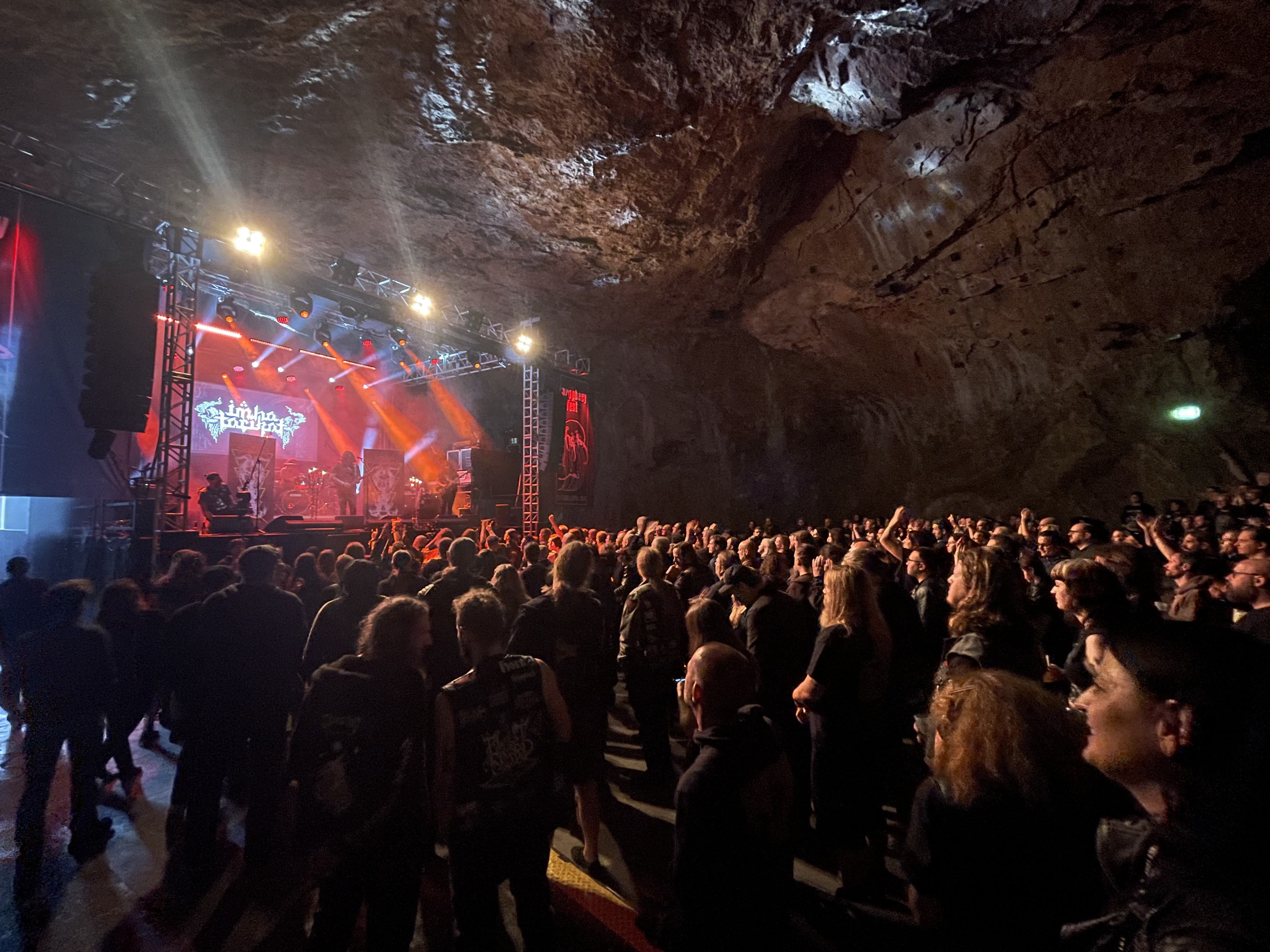
U.Ç.: I think emotional expression holds a very important place in the songs you create. For you, what is the moment in this process that makes you say, “yes, now let’s record and share with others?
Kerem Yılmaz: I would like to explain this feeling with an experience I had two days ago. Right now I am working on Imha Tarikat’s fifth release for which I prepared an amount of demos I did not touch for a couple of months. I just let them sit, while I went on with my every day life, work, concerts, family and so on. The first song I picked up goes by the project name „A Shadow No Light Could Cast“, in the middle of the process, after a couple hours of designing the structure, lyrics popped into my mind, which mainly revolve around me processing critical happenings in my personal life or what I see happening in the world, philosophical discussions and such. During this phase, for reasons I do not want to elaborate further at this moment, I started to cry, repeating certain sentences in my head, with the song running on repeat. And it all made sense in that moment, the music become a vessel that was taking the burden off me, of what made me feel this defeat. And this is what music means to me – it is a place of solace, through which you can gather your energies, amplify your emotions, retreat in. When this is given, then a song is going right, and this can be about any type of emotion, sitting alone crying certainly is not my everdyday state, but when I am able to allow myself into such a vulnerability, it feels cathartic and good.
U.Ç.: Speaking of emotion, I can say that aggression holds an important place in your music. What would you say about this? Additionally, do you also work through with emotions, impulses, and behaviors other than aggression?
K.Y.: While our presence may seem to radiate aggression, first and foremost what lies in the music is an immense concentration of energy, which builds the fundament to every of our very diverse range of emotions expressed. And we celebrate all of them, from friendship, to savageness, to grief and hope. And the feedback we receive from people also shows the ambiguity of perception, while in reality, it very much is what we wish for: A subjective understanding of what we emit, based on what the listeners come to see in us, also ever-reshaping as we also do as people.
U.Ç.: I’d like to continue with emotions. Black metal provides an important ground for processing dark emotions. In your opinion, how does dealing with this darkness affect the creator and the listener? I’m not talking about an enlightenment, but how does the act of expressing something, turning it into a work, or bringing it forth transform a person?
K.Y.: As an artist, I believe that we carry great responsibility in what we express. From music, to art, to movies and so on, everything we consume leaves an imprint on us, and with this in the back of my mind, I believe practicing an intense discipline such as Black Metal should be done with consciousness and responsibility, you can not talk about darkness, madness, satan, violence, murder and such things without expecting it to desensitize you, especially for people of young age, that still look to find their identity, these topics can be very impactful. For me it was, the Black Metal lifestyle was filled with madness in my early twenties, ranging from violence to absolute retreatment, but I was also a person that needed this extreme, while I was in my core always orienting to find balance, which I am still working on and never will finish.
U.Ç.: I consider good vocalists like Mortuus, Kvarforth, and Garm not only strong frontmen technically but also great storytellers. How do you see yourself? While creating a ritualistic sound, how do you approach the act of storytelling?
K.Y.: Writing and expressing lyrics should very much highlight the function you use your music as medium for. Words evoke memories, atmospheres, emotions, a world of pictures in your head. I aim to create through words emotions in me, and when I feel them, I hope that I can share these with others too. Because my goal is to create a connection to listeners, by trying to get as close to them as possible. I want them to feel the „we“ and not a „you vs me“.
U.Ç.: This might sound like a very classic question, but in the process of creating a song, which is more important for you in expressing an emotion—the lyrics or the music? Of course, it can be both. If so, how do you strike a balance?
K.Y.: It can be very different from song to song! Sometimes, I write lyrics, inspired by the demos, listening to them a ridiculous amount of time, or it will just be that I find a still moment in which an inspiration erupts out of me. In the end, each component will be tailored to each other under the premise, that what needs to be told does not lose ist genuity.
U.Ç.: As an artist and as a fan, who are the people and which bands have influenced Ruhsuz Cellat and shaped your perspective on music? It doesn’t necessarily have to be music—this question also includes other fields of art and literature.
K.Y.: I have always been a huge fan of videogames! One of my earliest memories is playing Super Mario on the NES. My whole teenage years I played video games, especially dark fantasy games like Gothic or Dark Souls, especially the first one had a huge impact on me. Back when it came out, it was packed with an immense dark and unforgiving atmosphere, with moments of melancholic peace and rest. I still love replaying it from time to time. Another game from whose soundtracks I found inspiration was an SNES game called Terranigma, in which you would submerge from the underworld to reignite live on earth, from nature, to animals, to humans, with in the end society becoming so modern, that it became lethargic and unhappy. This game was published in 1996 and was very ahead of ist time!
I also love watching movies and listen to music a lot. In all however, I was rather inspired by the feelings they created inside of me rather than the technicality of how they are achieved, this is also why sometimes people can not point their fingers on our music, calling us fully Black Metal, because if you would base it on a certain type of sounding, then we certainly may not fit the profile. Titling our music Black Metal comes from the no-rules attitude we practise what we want to do.
U.Ç.: You were born in Germany, but your family roots are in Turkiye. Physically as well, you differ from the classic German phenotype. Do these differences make you an “other”? Or does this situation influence your music?
K.Y.: I was born, grew up and am living in a German city called Essen in a region we call the „Ruhrpott“. You have a great amount of different ethnicities here, and through that, lots of cultural imprints in interactions, which I find to be very exciting if you allow it to inspire you. However racism definitely does happen, and especially in my teenage years I avoided telling others of my Turkish heritage, even if yes, it was visible. Others would profile Turkish people as savages or lower class, while my family upcoming, their efforts to be good and effortful people, would prove different every day. For a young kid and the struggles of every day life, it was making me feel uncomfortable, since I was always very cautious to my surroundings. Later however I learnt to not give a damn about what people think and instead of trying to play against their cards, I just decided to not play their games, and learnt to embrace my upbringing, which I love. How this may inspire the music is through the emotions I lived through, but not in any way as readable context, the topics of the music do not revolve around any clear thing to point at.
U.Ç.: I see Kara İhlas, Sternenbester, Hearts Unchained, and Confessing Darkness as a continuum, and there’s clearly noticeable progress musically. How would you describe your musical background and discography?
K.Y.: This is very much true. Throughout the discrography of Imha Tarikat, up to this point, you do not only get to perceive the efforts of releases standing by theirselves, but also the hardships of a (once young) man to find his place in life. Each release was a study in understanding the world (through my eyes), myself, becoming better at practising music and a step further towards finding a balance in life.
U.Ç.: You will have a concert in Turkiye this year. What would you like to say to your followers here?
K.Y.: If it is okay, I would like to skip this question. Something happened on the organizer-side, which may cause the event to cancel.
U.Ç.: Finally, this is a bit personal, but I didn’t want to leave it unsaid: I think a collaboration with Muhammed Suiçmez would result in something truly magnificent. Do you think such a partnership could ever happen?
K.Y.: Haha, I love this one! I don’t know if Muhammed abi even knows of my existence, but I would absolutely love to collaborate with a musician of his calibre!
